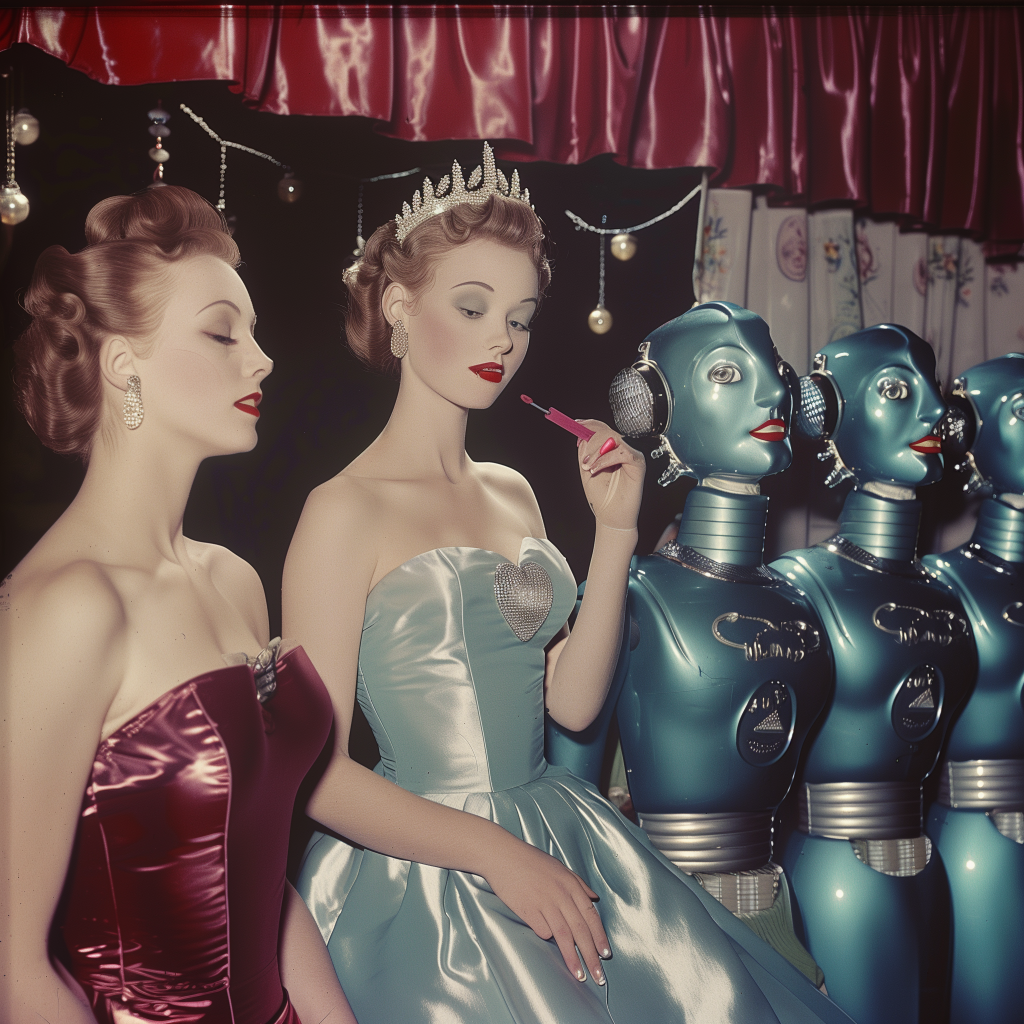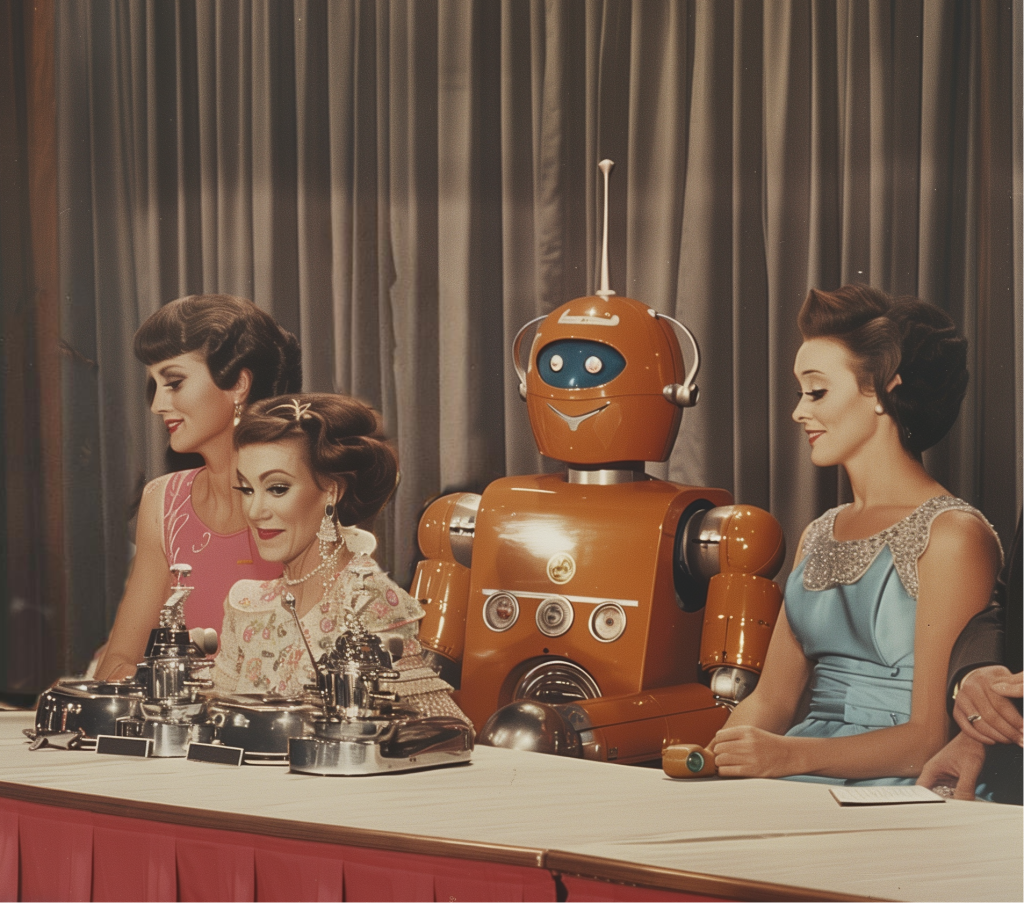The debut of the “Miss AI” contest marks a groundbreaking moment in the world of beauty pageants, as it introduces a competition exclusively for AI-generated female avatars. With a grand prize of $20,000 on the line, this innovative event is hosted by Fanvue, a company at the forefront of digital innovation. The pageant aims to showcase the sophisticated use of artificial intelligence in crafting digital personas, blending the allure of traditional pageantry with the cutting-edge possibilities of technology.
What is the Miss AI Pageant?
The Miss AI pageant, organized by Fanvue in partnership with the World AI Creator Awards (WAICA), is a first of its kind event in the beauty pageant industry, showcasing exclusively AI-generated female models. This event seeks to demonstrate and commercialize the artistic skills of AI developers by offering a platform to display their digital creations. Judging is conducted by a panel comprising both human experts and AI systems, which evaluates the contestants based on a comprehensive set of criteria. Participants have the opportunity to win substantial cash prizes and promotional deals, rewarding their technological and creative expertise while enhancing their profiles in the digital content arena. The top prize includes a significant cash award along with mentorship and PR support, reflecting the pageant’s commitment to promoting innovation in the AI field. As part of WAICA’s larger effort to acknowledge the contributions of AI creators worldwide, the Miss AI pageant marks a notable development in the convergence of beauty and technology within contemporary digital culture.

Contest Details and Entry Requirements
To partake, participants must create and submit a female avatar along with answers to questions about their vision for a better world and the AI tools used in their creation. The contest emphasizes not just aesthetic beauty but also technical prowess and social media impact, with a points-based evaluation across these categories. The competition is open to creators worldwide, with no registration fee, and entries can be made using any AI tool. Winners can look forward to cash prizes and promotional opportunities, aiming to highlight their skills and enhance their visibility in the digital content realm.
Judging Criteria
In the Miss AI pageant, judging criteria extend beyond traditional beauty to include technological expertise and social media impact. Contestants are assessed on their ability to use AI tools to create detailed, realistic images, with particular attention to challenging features like eyes and hands. Additionally, the competition evaluates the social media clout of the AI-generated personalities. This includes their popularity on platforms such as Instagram and their engagement strategies with fans, measuring how effectively they connect with and expand their audience.
The Role of AI in Pageantry
The integration of AI in pageantry, exemplified by the Miss AI pageant, marks a significant shift in how beauty and influence are perceived and showcased in the digital era. This innovative approach merges traditional pageant elements with advanced technology, emphasizing not just the aesthetic appeal of the contestants but also their technical and social media prowess. Digital models such as Emily Pellegrini and Aitana Lopez illustrate the potential of AI in this domain. Both have garnered large followings on social media platforms like Instagram and secured multiple brand deals, demonstrating the commercial viability and influence of AI-generated personalities.
These digital influencers are crucial to the pageant, underscoring its focus on three main criteria: visual appeal, technical sophistication in AI model creation, and social media clout. The success of these AI models in engaging online audiences has opened doors for similar digital entities to participate in commercial and promotional activities traditionally reserved for human influencers.
The Panel of Judges
The pageant features a unique panel of judges that blends AI-generated influencers with human experts, providing a comprehensive and diverse evaluation of contestants. This panel includes AI influencers like Aitana Lopez and Emily Pellegrini, who bring insights from their experiences as digital personas with substantial social media followings. They are joined by human judges such as Sally-Ann Fawcett, a historian of traditional beauty pageants, and Andrew Bloch, a public relations entrepreneur. This diverse mix aims to ensure a well-rounded judgment process that assesses contestants not only on their aesthetic and technical attributes but also on their ability to engage and influence social media audiences.
The involvement of AI influencers as judges is particularly noteworthy because it underscores the evolving interaction between humans and digital entities within cultural and commercial realms. By integrating AI judges who themselves are products of advanced technological creativity and social media dynamics, the pageant highlights the growing relevance of digital identities in shaping public and media narratives. This innovative approach to judging reflects the pageant’s aim to marry traditional beauty standards with modern technological achievements.

The Impact on the AI Creator Economy
The Miss AI pageant showcases the artistic and technical prowess of AI creators and aims to establish a new platform for recognition and monetization within the digital creator economy. The event offers substantial financial incentives, including a total prize pool of $20,000, with the winner receiving $5,000 along with additional promotional support and PR opportunities. It also highlights the potential for AI-generated models to engage a broader audience, mirroring the influence traditionally held by human influencers. By rewarding creators for their innovations in AI, the pageant encourages further development and integration of AI into creative and commercial enterprises. It plays a crucial role in expanding the creator economy, providing a venue for new talents to emerge and gain visibility in an increasingly digital world.
Potential Criticisms and Ethical Considerations
The Miss AI pageant, while innovative, raises several ethical considerations and potential criticisms that mirror those often directed at traditional beauty contests, but with a digital twist. One significant concern is the reinforcement of unrealistic beauty standards through AI-generated models that represent an idealized form of perfection impossible for real humans to achieve. This could potentially exacerbate the pressure on individuals, particularly young women, to conform to unattainable beauty ideals.
Moreover, the competition has been critiqued for possibly dehumanizing participants, albeit digital ones, echoing longstanding criticisms of human beauty pageants. Some argue that just as traditional pageants can reduce participants to mere objects for evaluation based on physical appearance, so too can a digital pageant, though the subjects are not human. This might trivialize the broader implications of using AI to mimic human attributes.
Additionally, there are concerns about the ethical implications of AI in terms of representation and the autonomy of digital personas. The use of AI models as judges, such as Emily Pellegrini and Aitana Lopez, raises questions about the authenticity of their judgments and the programmed biases they may include. These models generate revenue for their creators through social media engagement and brand endorsements, which complicates the dynamics of influence and economic benefit in the digital creator economy.
Conclusion
The “Miss AI” contest, hosted by Fanvue in conjunction with the World AI Creator Awards, represents a novel intersection of artistry, technology, and commerce. This event, focusing exclusively on AI-generated avatars, not only deviates from traditional beauty pageant norms but also underscores the growing role of digital personas in cultural and commercial spheres. As it showcases the creativity and technical skills of AI developers, the contest also prompts reflection on the ethical implications inherent in digital representations. This pageant indicates a significant shift in the perceptions of beauty and influence within the digital realm, potentially setting a new standard for technological integration in established sectors. The “Miss AI” pageant is thus a pivotal development in both the beauty industry and the broader AI creator economy, sparking extensive debate and discussion.





Leave a comment